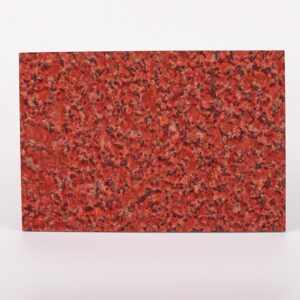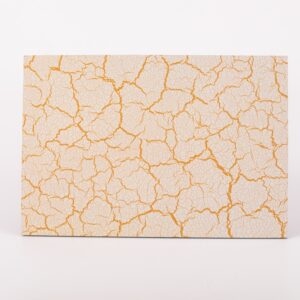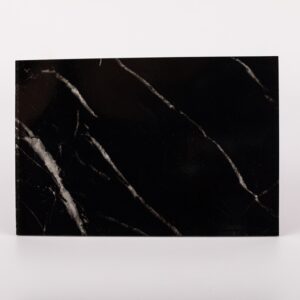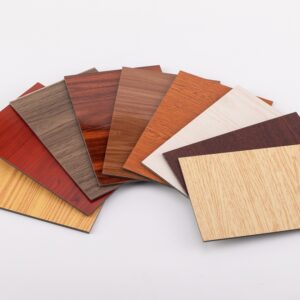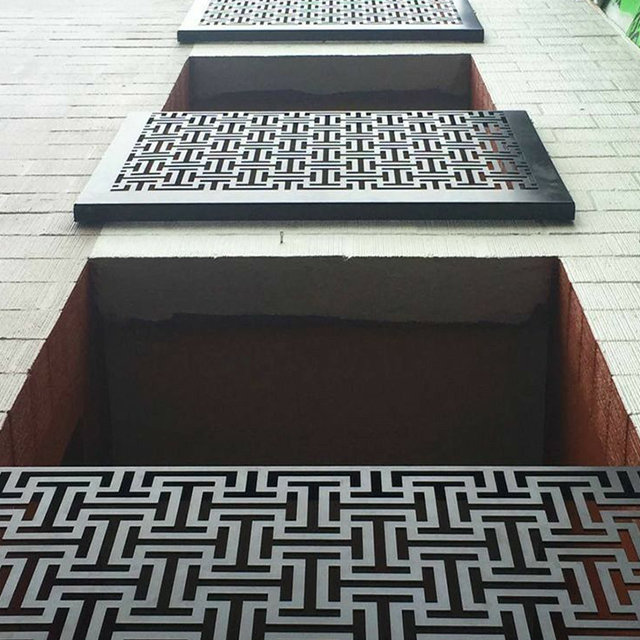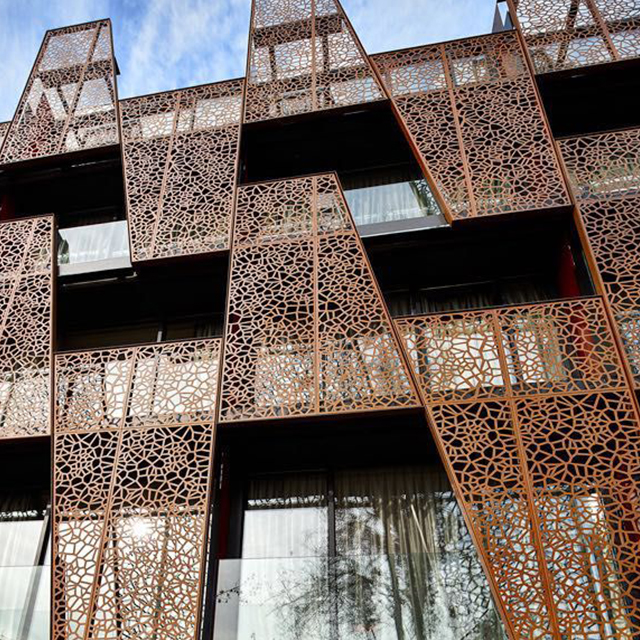Aluminum composite panels (ACPs) have emerged as a popular choice for building facades, offering a blend of practicality, versatility, and aesthetic appeal. In this article, we explore the various aspects that make ACPs an ideal solution for modern architectural designs.
Durability and Weather Resistance
Aluminum composite panels are renowned for their durability and ability to withstand diverse weather conditions. The combination of aluminum outer layers and a core material, often made of polyethylene or mineral-filled polymer, provides excellent strength and resilience against moisture, UV rays, and temperature fluctuations. This durability ensures that ACPs maintain their structural integrity and aesthetic appeal over extended periods, making them suitable for both exterior and interior applications.

Design Flexibility and Customization
One of the key advantages of aluminum composite panels is their design flexibility and customization options. ACPs can be fabricated in various shapes, sizes, and colors to suit the unique requirements of each project. Advanced manufacturing techniques, such as CNC machining and digital printing, enable precise detailing and intricate designs, allowing architects to unleash their creativity and achieve distinctive facade aesthetics. Whether seeking a sleek and modern look or a textured and organic appearance, ACPs offer endless possibilities for architectural expression.
Lightweight Construction and Ease of Installation
Despite their robustness, aluminum composite panels are lightweight compared to traditional building materials like concrete or steel. This lightweight nature not only simplifies transportation and handling but also facilitates quick and efficient installation on-site. With proper planning and preparation, ACPs can be installed with minimal disruption to construction schedules, making them a preferred choice for fast-track projects or renovations. Additionally, the ease of installation contributes to cost savings and labor efficiency, enhancing the overall project feasibility.
Thermal and Acoustic Insulation
In addition to their structural benefits, aluminum composite panels offer thermal and acoustic insulation properties, contributing to enhanced comfort and energy efficiency within buildings. The core material in ACPs acts as a thermal barrier, reducing heat transfer through the facade and improving indoor temperature regulation. Moreover, when installed with appropriate insulation layers, ACPs can also help attenuate sound transmission, creating quieter and more peaceful interior environments. These thermal and acoustic insulation qualities make ACPs suitable for a wide range of building typologies, including residential, commercial, and institutional projects.
Low Maintenance and Longevity
Maintaining building facades can be a challenging task, especially in urban environments exposed to pollution and environmental contaminants. Aluminum composite panels require minimal maintenance to retain their appearance and performance over time. Routine cleaning with mild detergent and water is usually sufficient to remove dirt, dust, or stains from the surface of ACPs. Furthermore, the inherent corrosion resistance of aluminum ensures that ACPs remain unaffected by rust or degradation, even in harsh climatic conditions. With proper care and periodic inspections, ACPs can maintain their functionality and aesthetics for decades, offering long-term value and cost savings to building owners.
Conclusion:
In conclusion, aluminum composite panels offer a practical and versatile solution for building facades, combining durability, design flexibility, ease of installation, thermal and acoustic insulation, and low maintenance requirements. As architects and developers seek innovative and sustainable building materials, ACPs continue to play a significant role in shaping modern architectural landscapes. With ongoing advancements in technology and manufacturing processes, the practicality and performance of aluminum composite panels are poised to further elevate the standards of building design and construction.

